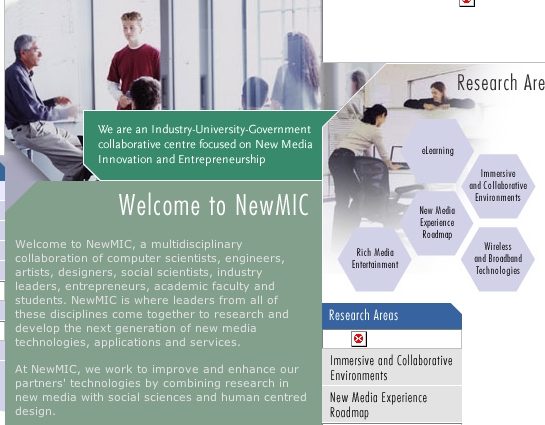Fotolog.net allows people to create one-picture-a-day blogs. Simple interface that works for diary-like image. Amazing international crowd of fotologgers (largest group from Brazil) – most are just posting pictures of themselves and friends, on which other comment, but some are beautiful. Much more interesting than lulu.com.
Continue reading Fotolog.net: Photography Blogs
Brazilian Internet
Brazil Internet Craze Angers English Speakers is a Reuters.com article about the flood of Brazilians writing in Portuguese on www.orkut.com. Orkut is a social-networking site supported by Google to which you have to be invited. Apparently Brazilians are now upsetting the English speakers as they dominate the site. Good for them, its the beginning of the internationalization of the net.
Continue reading Brazilian Internet
Higher Learning Online Magazine
Higher Learning; Technology Serving Education is an online magazine launched in 2001 aimed at the higher ed market. It comes out about once every two months as a PDF and is a spin-off of TEACH Magazine. It is interesting that they provide the PDF versions for free of both HL and TEACH. What is dissappointing is that they are similar to Educause, emphasizing commercial technologies and “success” stories. Probably a good place to keep up on the hype, but I’m not sure they will invest in critical inquiry.
What Happened to NewMIC?

NewMIC Home is the last archived version of the New Media Innovation Centre in the Internet Archive, dated July 15, 2003. In a previous post on RFID: Radio Frequency Indentification I mentioned NewMICs vanishing. The archived site gives no hints as to why this high-profile iniative was closed down – do you know why? Leave me a comment if you do.
Continue reading What Happened to NewMIC?
Wayback Machine: Internet Archive
In my previous post I mentioned the dissappearance of NewMIC and how hard it is to find information about ghost organizations. Two places I have found that can be used to find information are:
- Ghost Sites: Where Dead Web Sites Live On is a blog with articles on ghost sites and their history. From there you can link to Ghost Sites: The Museum of E-Failure (Dead Web Site Screenshots).
- Internet Archive: Wayback Machine is an archive of sites. If you search for a URL like newmic.com it will give you a list of dated snapshots.
RFID: Radio Frequency Indentification
Site Watch, on RFID is an irregular column by Treanna Szelei of SFU that is part of digest a report on emerging trends in “human-technology interaction and e-lifestyles.” This column has good starting spots on RFID (Radio Frequency Indentification), arguably the most important embedded technology that people don’t know about. RFID has the potential to be a huge surveillance and privacy issue, but the tags are so small and unobtrusive that we don’t know they are there. Not knowing they are there, unlike active badges, means that we don’t worry about them potentially leaving us all wearing active tags that can be tracked.
Continue reading RFID: Radio Frequency Indentification
NRC: 3D Technologies
The 3D Visualization Technologies Research Group is part of the National Research Council Institute for Information Technology. They have developed laser scanners that can digitize spaces and objects. (See The Virtual Theater). They have also developed technologies for generating 3D spaces from images/paintings and technologies for searching 3D databases.
Continue reading NRC: 3D Technologies
Copernic: NRC Summarizing Tools
Copernic is a company that has licensed text summarization technology from the Institute for Information Technology at the National Research Council. They have agent and summarizer tools that can help searching the web and managing results. The Copernic Summarizer, in particular, looks like an interesting application of summarization for everyday use, including the ability to summarize web pages in real time. Neat!
Continue reading Copernic: NRC Summarizing Tools
Gallery: Photo Albums for the Web
Gallery is a freeware web photo album package that allows you to manage your digital pictures. It seems well supported – has skins, does image downsizing, supports captions and so on. (This is courtesy of Ross Scaife.) Do you know of any others?
CBBAG Bookbinding
Paul Lisson pointed me to Canadian Bookbinders and Book Artists Guild (CBBAG, pronounced “cabbage”). They have a great site on bookbinding and book arts that includes online exhibits like Textual Relations. The amount of information on the site and all the activities of CBBAG (from aprons for sale to home courses) suggest an active community (and thorough web mistress.) I have not excuse now, but to take a course or buy the home video series.